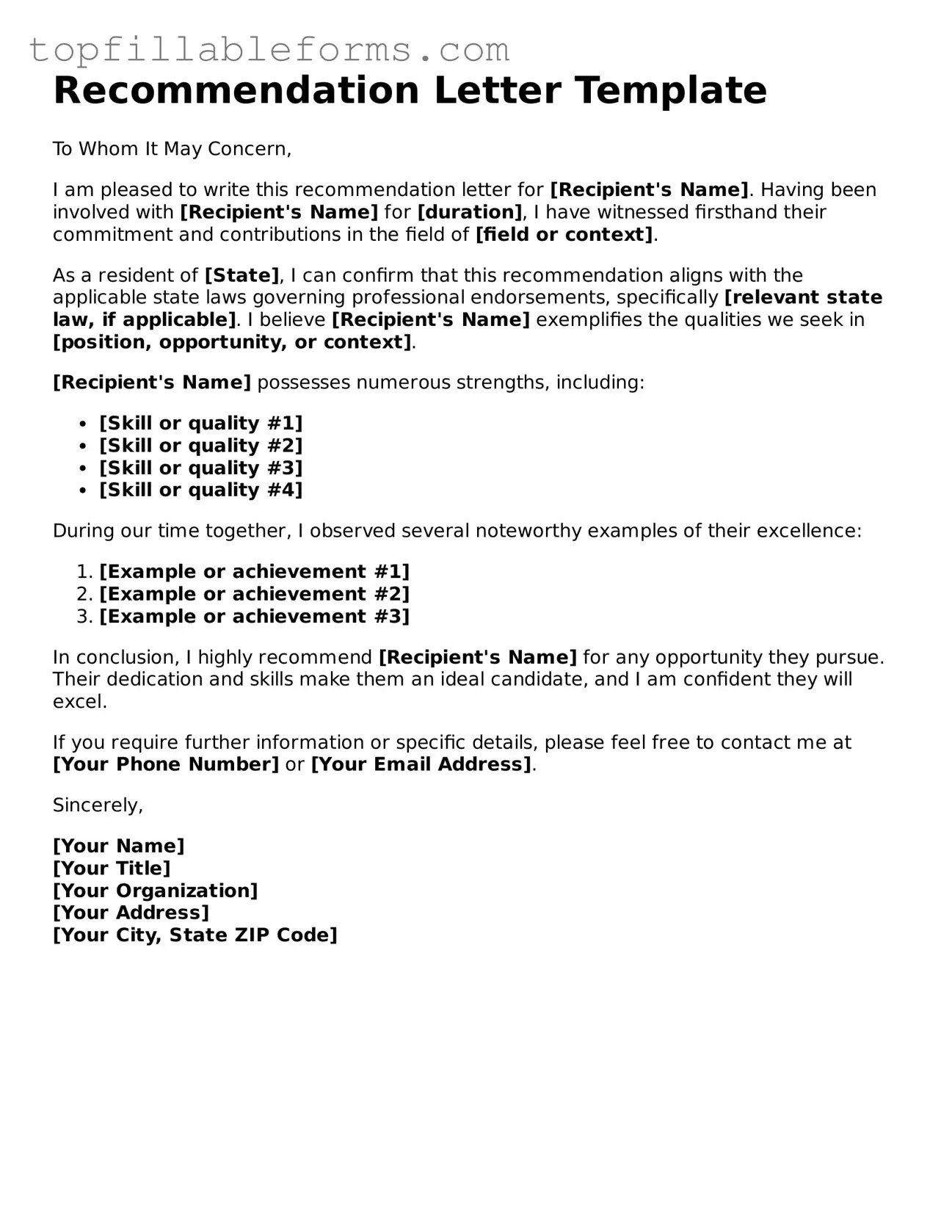Free Recommendation Letter Form
The Recommendation Letter form is a document used to provide a formal endorsement of an individual's skills, character, and qualifications. This form is often requested by employers, educational institutions, or organizations seeking to gain insight into a candidate's abilities and experiences. Understanding how to effectively complete and utilize this form can significantly enhance a candidate's chances of success.
Open Recommendation Letter Editor Here

Free Recommendation Letter Form
Open Recommendation Letter Editor Here
Finish the form now and be done
Finish your Recommendation Letter online by editing, saving, and downloading fast.
Open Recommendation Letter Editor Here
or
▼ PDF File
